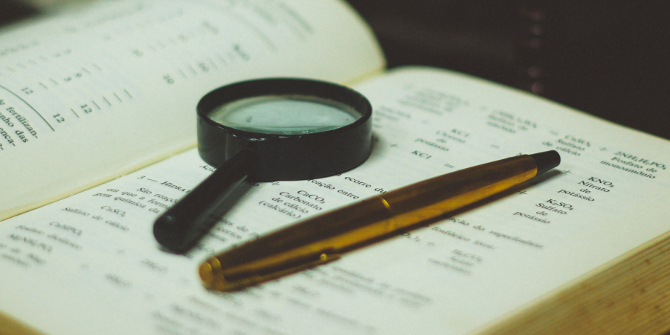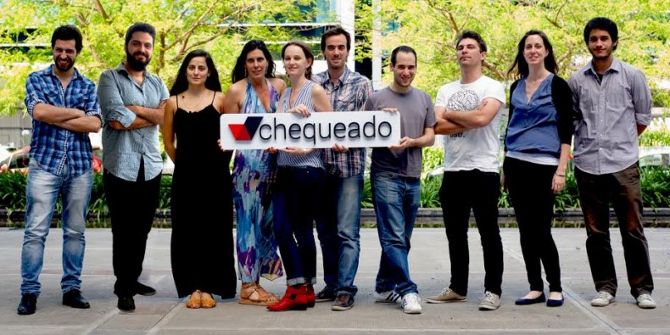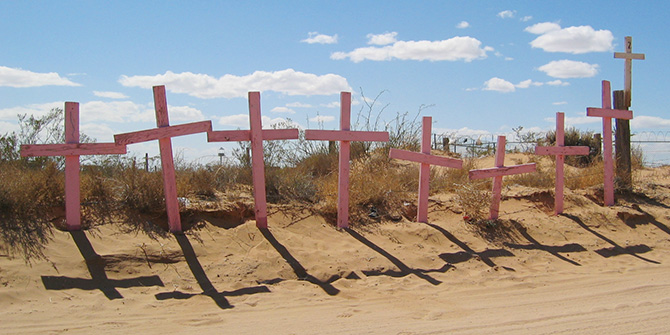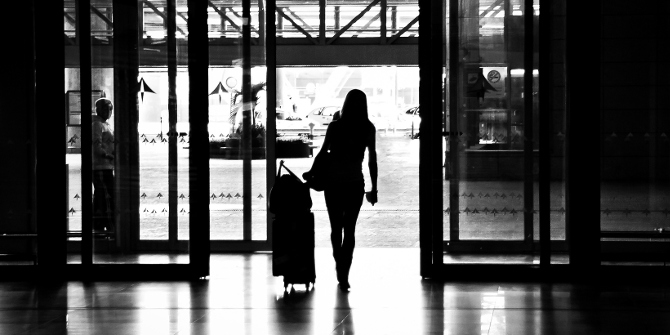 In a context of institutional opacity and low-quality reporting, Latin American fact-checkers are growing in number and importance, writes Ariel Riera (LSE).
In a context of institutional opacity and low-quality reporting, Latin American fact-checkers are growing in number and importance, writes Ariel Riera (LSE).
In 2003 Brooks Jackson launched FactCheck.org, giving the name to a fact-checking style of reporting. This genre of journalism, understood briefly as testing factual claims in order to make public discourse accountable and more accurate, has been growing continuously. According to the 2018 Duke Reporters’ Lab annual fact-checking census, there are 149 active fact-checkers worldwide.

Latin American organisations account for 17 of the fact-checkers identified by Duke Reporters’ Lab, and they share some attributes that reflect some of the peculiarities of the Latin American media landscape.
Smaller and more independent
Only five out of the 17 fact-checkers in the report are part of a traditional well-established media outlet or group (this sum includes EBC, Brazil’s publicly funded news service, which utilises the tag ‘hoax’ to cover misinformation online). This contrasts with the situation in the US, “where most fact-checkers (41 of 47, or 87 per cent) are directly affiliated with newspapers, television networks and other established news outlets.”
Dulce Ramos, Program Manager for the International Fact-Checking Network (IFCN), explains:
Most of the Latin American fact-checkers were born or consolidated in the independent media environment and were incubated in small newsrooms. That has pros and cons. On the one hand, fact-checkers have great flexibility to experiment, but on the other hand, their possibilities of growth are limited due to limited budgets.
Ramos also notes that Latin American organisations have managed to overcome difficulties: “They have obtained funding from international donors, have joined the great technological platforms (Facebook, for example) in the search for solutions that pair technology and fact-checking as a way to reach a wider audience”.
Additionally, while in the English-speaking world “fact-checkers and investigative reporters are friendly but distinct”, as pointed out by the IFCN Director Alexios Mantzarlis, in Latin America many organisations carry out both types of journalism.
Five of the active fact-checking projects in the region are part of independent websites that also publish journalistic investigations or political reports:
- ConPruebas [WithFacts] from Guatemala
- Colombia Check and Detector de Mentiras [The Lie Detector] from Colombia
- El Sabueso [The Bloodhound] from Mexico
- Truco from Brazil
Other similar cases, like Ojo Biónico [Bionic Eye] from Perú or Chequéalo PR [Check it PR] from Puerto Rico, are currently inactive.

Combating a lack of information
In some countries in the region there are problems with availability or reliability of data. However, Ramos highlights this as a lesson, since “the lack of data hasn’t stopped the fact-checkers there. When something cannot be verified, they say it and they fight for the necessary data to be opened up. They turn obstacles into levers”. In addition to traditional categories like “True” or “False”, many Latin American fact-checkers include “Unsustainable” as a category to mark the absence of public information to verify a claim.
Many fact-checking initiatives started as a new way to cover elections, in some cases persisting after voting concluded. In Brazil, the website Truco launched a satirical video during the 2014 elections to complain about the lack of responses from the main Brazilian candidates’ press officers. The video published online (see below) featured the song “Perhaps, Perhaps, Perhaps” in the background, which includes the lyrics: “every time I ask you, ‘what, when, how, and when’, you always answer, ‘perhaps, perhaps, perhaps’”.
Girl power
According to the 2011 Global Report on the Status of Women in the News Media women were underrepresented in the highest positions: within the Americas (including the US and Canada), they represented 21.5% at the governance level and 30.4% at the top-management level.
In contrast, half of the active fact-checking projects in Latin America have a woman in charge: Agência Lupa [Magnifying Glass Agency], Aos Fatos [To the Facts], Chequeado [Checked], Colombia Check, Detector de Mentiras, El Polígrafo [The Polygraph] and Truco. Female participation is even greater when focusing only on those organisations that have signed up to the IFCN’s code of principles: five of these six are directed by women.
However, this could also be part of a broader trend in digital startups. A 2016 analysis of 100 digital media outlets in Argentina, Brazil, Colombia, and Mexico found that 38% of the founders were women, with women in management positions at 57 of these initiatives. A report from SembraMedia concludes that “this finding suggests that women are taking advantage of the low barriers to entry in digital-media startups to go around the glass ceilings of traditional media and build their own publishing companies”.
Involving the audience
Even if fact-checking implies a certain kind of authoritativeness – at least to establish whether or not a claim is correct – Latin American initiatives have been trying to incorporate their readers in part of their process. The most common practice is to ask people to suggest what statements could be checked. Detector de Mentiras, meanwhile, has gone one step further, receiving suggestions for which WhatsApp-based viral hoaxes to check and then asking readers to commit to forwarding fact-check conclusions to their friends.
Chequeado has started to incorporate people in live fact-checking coverage, both by prompting users to send data through social media and by allowing citizens to collaborate in the checking process. Other sites like El Sabueso have followed suit.
Chequeado also undertook experimental studies with its audience on identifying checkable statements in political discourse. There were 3,557 participants, and the study concluded that “participating in a short training session significantly increased participants’ performance”. The resulting paper was published in the peer-reviewed journal Communication Research Report.
Challenges
Cristina Tardáguila, director of Agência Lupa, worries that “there are few fact-checkers to face the huge amount of low-quality information”. That is why projects like Chequeado and Agencia Lupa launched initiatives improving media literacy. “We have trained more than 3 thousand people. It would be great if many of them effectively check their mayors, councillors and so on. There is a need of ultra-local fact-checking, focused on what happens in a town or a county”, added Tardáguila.
For Laura Zommer, executive director at Chequeado, there are two main issues for the future:
On the one hand, it is necessary to figure out how to reach broader audiences, beyond those already convinced about the importance of data, and break the filter bubbles. On the other hand, we need to generate public demand for data and prevent fact-checking from generating incentives for less usage of data by leaders.
Notes:
• The views expressed here are of the authors rather than the Centre or the LSE
• This article originally appeared on the LSE Media Policy Project blog
• Please read our Comments Policy before commenting





